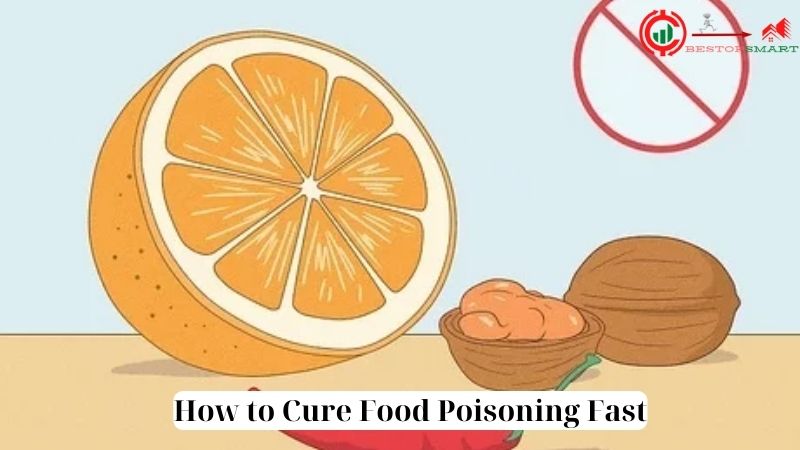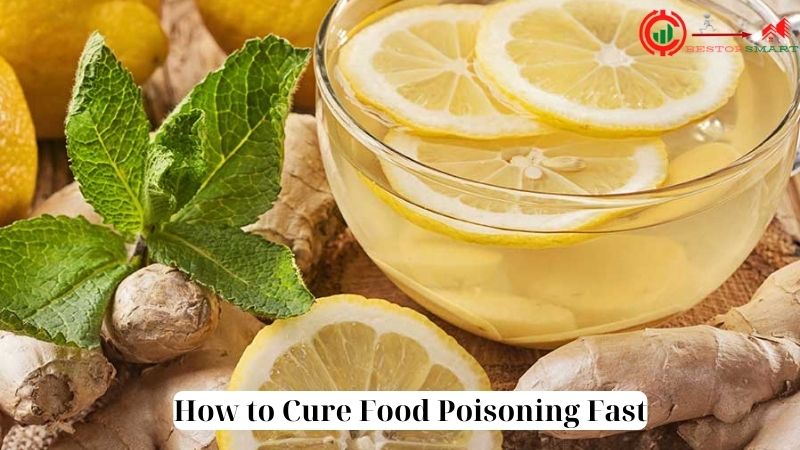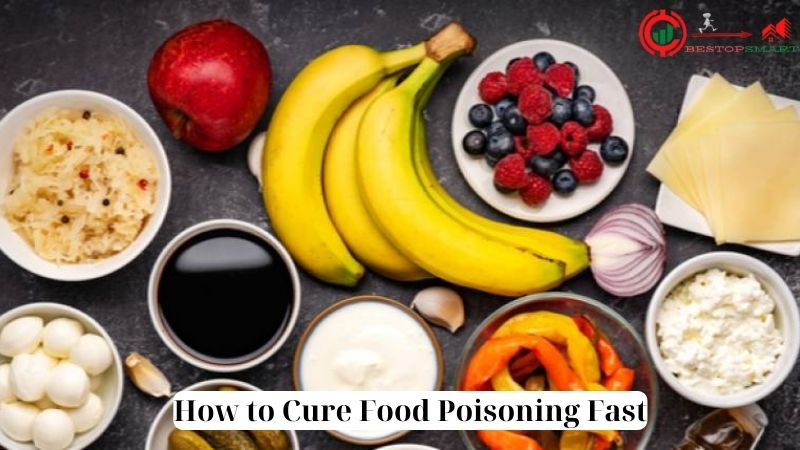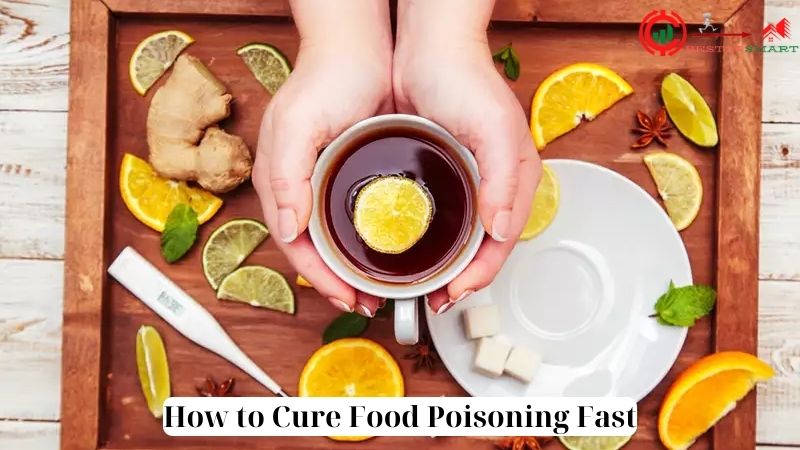Food poisoning is a common and unpleasant experience that occurs when contaminated food or water is consumed. It can lead to a range of symptoms, including nausea, vomiting, diarrhea, stomach cramps, and fever. While food poisoning can be mild and resolve on its own, it can also be severe and require medical attention. In this article, bestopsmart.com will explore How to Cure Food Poisoning Fast with effective remedies and tips to alleviate symptoms and promote speedy recovery.
Contents
Identifying Food Poisoning

Recognizing the symptoms of food poisoning is the first step in seeking fast treatment. Common symptoms include nausea, vomiting, diarrhea, stomach cramps, and fever. These symptoms typically occur within hours of consuming contaminated food or water and can last for a few hours to several days. It is important to note that symptoms may vary depending on the type of bacteria or toxin ingested and the individual’s immune system response.
How to Cure Food Poisoning Fast?
When confronted with symptoms indicative of food poisoning, it is of utmost importance to swiftly initiate measures aimed at mitigating discomfort and expediting the recovery process. Central to this endeavor is the critical role of adequate hydration, serving as a cornerstone in replenishing lost fluids and electrolytes resulting from bouts of vomiting and diarrhea. The consumption of clear fluids such as water, broth, or electrolyte solutions proves instrumental in thwarting dehydration and facilitating the restoration of bodily equilibrium. Equally crucial is the adoption of a comprehensive regimen that prioritizes rest and refrains from the consumption of solid foods, thereby affording the digestive system an essential opportunity to recuperate and mend from the adverse effects of food poisoning.
Home Remedies and Treatments

Several home remedies and treatments can help alleviate symptoms of food poisoning and promote faster recovery. Oral rehydration solutions can be made at home by mixing water, sugar, and salt to replace lost fluids and electrolytes. Herbal teas such as peppermint or ginger tea can soothe the stomach and alleviate nausea. Probiotics, found in yogurt or supplements, can help restore the balance of good bacteria in the gut. The BRAT diet, consisting of bananas, rice, applesauce, and toast, is gentle on the stomach and easy to digest. Activated charcoal supplements can also help absorb toxins in the digestive system.
Over-the-Counter Medications
Over-the-counter medications offer a temporary respite from the symptoms of food poisoning. Antidiarrheal medications like loperamide (Imodium) are effective in reducing diarrhea and alleviating stomach cramps. Antacids such as calcium carbonate (Tums) or magnesium hydroxide (Maalox) can provide relief from stomach discomfort and acidity. Pain relievers like acetaminophen (Tylenol) or ibuprofen (Advil) are useful in managing headaches and body aches associated with food poisoning. Nevertheless, it is imperative to seek advice from a healthcare professional prior to taking any medications, particularly if you have pre-existing medical conditions or are on other medication regimes.
Professional Medical Care

In certain instances, food poisoning can escalate to a severe level, necessitating immediate medical attention. It is imperative to seek medical care without delay if symptoms persist or worsen, particularly if you are afflicted with severe dehydration, high fever, bloody stools, or exhibit signs of shock. Upon seeking medical attention, healthcare providers may opt to prescribe antibiotics to combat bacterial food poisoning or administer antiemetic medications to alleviate symptoms of nausea and vomiting. In more critical scenarios, hospitalization may be required to administer intravenous fluids, effectively addressing dehydration and restoring electrolyte balances within the body.
Preventive Measures
Preventing food poisoning is key to avoiding discomfort and illness. Practicing food safety measures such as washing hands before and after handling food, cooking foods to the appropriate temperature, and avoiding cross-contamination can reduce the risk of foodborne illness. Properly storing perishable foods in the refrigerator or freezer and avoiding consuming expired or spoiled foods can also prevent food poisoning. Additionally, maintaining good hygiene and cleanliness in food preparation areas can minimize the risk of contamination.
Conclusion
Food poisoning can be a distressing experience, but with prompt treatment and care, symptoms can be alleviated, and recovery can be achieved quickly. By recognizing the symptoms of food poisoning and taking immediate steps to alleviate discomfort, individuals can promote faster recovery. Home remedies such as oral rehydration solutions, herbal teas, and probiotics can help restore gut health and alleviate symptoms. Over-the-counter medications can provide temporary relief from symptoms such as diarrhea, nausea, and stomach cramps.
In severe cases, professional medical care may be necessary to treat dehydration and electrolyte imbalances. Practicing food safety measures and proper hygiene can also prevent food poisoning and promote overall health and well-being. Remember, if symptoms persist or worsen, it is important to seek medical attention promptly for proper diagnosis and treatment. Thank you for reading our article!





Leave a Reply